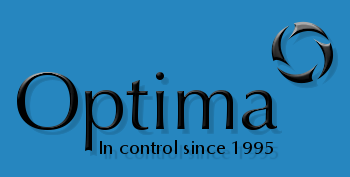That rainy Friday afternoon was the end of the working week for Optima’s engineers. For a 17-year-old boy, however, it was the beginning of an exciting journey in the world of engineering.
Philip Sellars is a final year student at a grammar school in Clitheroe and is about to sit his A level exams in maths, physics and chemistry. As part of his studies, Philip decided to spend a week working for Optima Control Solutions in Blackburn. Besides having an absolute passion for physics and engineering, Philip is a good swimmer and loves playing chess.
Philip talks to Hristina Stefanova about the magic of physics, the lessons learned at Optima and the future of engineering.
H: Which subject do you enjoy the most?
P: Physics, probably, because it is not that hard but you have to learn a lot. It is not just a matter of understanding it but also taking it slowly. For some subjects you have to completely understand the core and then take your time and learn.
H: How did you find out about Optima and how did you decide to get work experience here?
P: I was looking for engineering companies in the area. I saw Optima’s website – it looked like a nice company with nice and friendly atmosphere. I e-mailed Michael and he replied positively straight away.
H: Now that you have spent a week with Optima, do you think that engineering and physics are the right subjects for you?
P: Yes, the feeling of engineering things right is really nice, but that involves doing it wrong for a while, too [laughs]. It takes years to get it right, even the engineers here tell me that 1-2 years are not enough to pick it up. I wanted to do medicine when I was in year 9. When I finished a week of work experience at a care home I decided I did not want to do medicine. It is a good opportunity to get a feeling of the subject and now I know that engineering is definitely the job for me!
H: So, you see yourself working as an engineer?
P: Yes, engineering is a public service – giving people electricity or civil engineering is great – they need it to survive, so it is like doing a public service.
H: Do you think it is worth the effort and all the hard work to achieve this level of engineering expertise?
P: It is hard but also fun. If I enjoy learning about engineering now, it will always be fun. Constant learning expands your worldview.
H: What lessons did you learn here?
P: First, how to find information myself. At school it is all printed out for you. Here, you have to get deeper and look it up for yourself. From a practical point of view, I programmed a traffic light system. I programmed the PLC software so that the lights change after a certain period. I also did some drawings on Visio – I learned how to use the symbols for parts such as resistors, motors and batteries.
H: What did you learn about the company itself?
P: One of my tasks was to look at three projects of different value completed by Optima. I found out what job they did, where and how they did it and how valuable it was for the customer company.
H: How do you see the future of engineering?
P: That is a tough question but I would say – nano-technologies! Imagine having really small control systems, incorporated in small chips. Then you can have a chip into another chip. Maybe one day a whole control system will be fitted into a single atom. Then you can build a whole production line out of this material and you get the ultimate control over it.
H: What would be the benefits of using nano-technology in control systems engineering?
P: The smaller you get something, the more efficient it can be. Less material is used, so it would be a cost saving for both sides – engineers and their customers.
